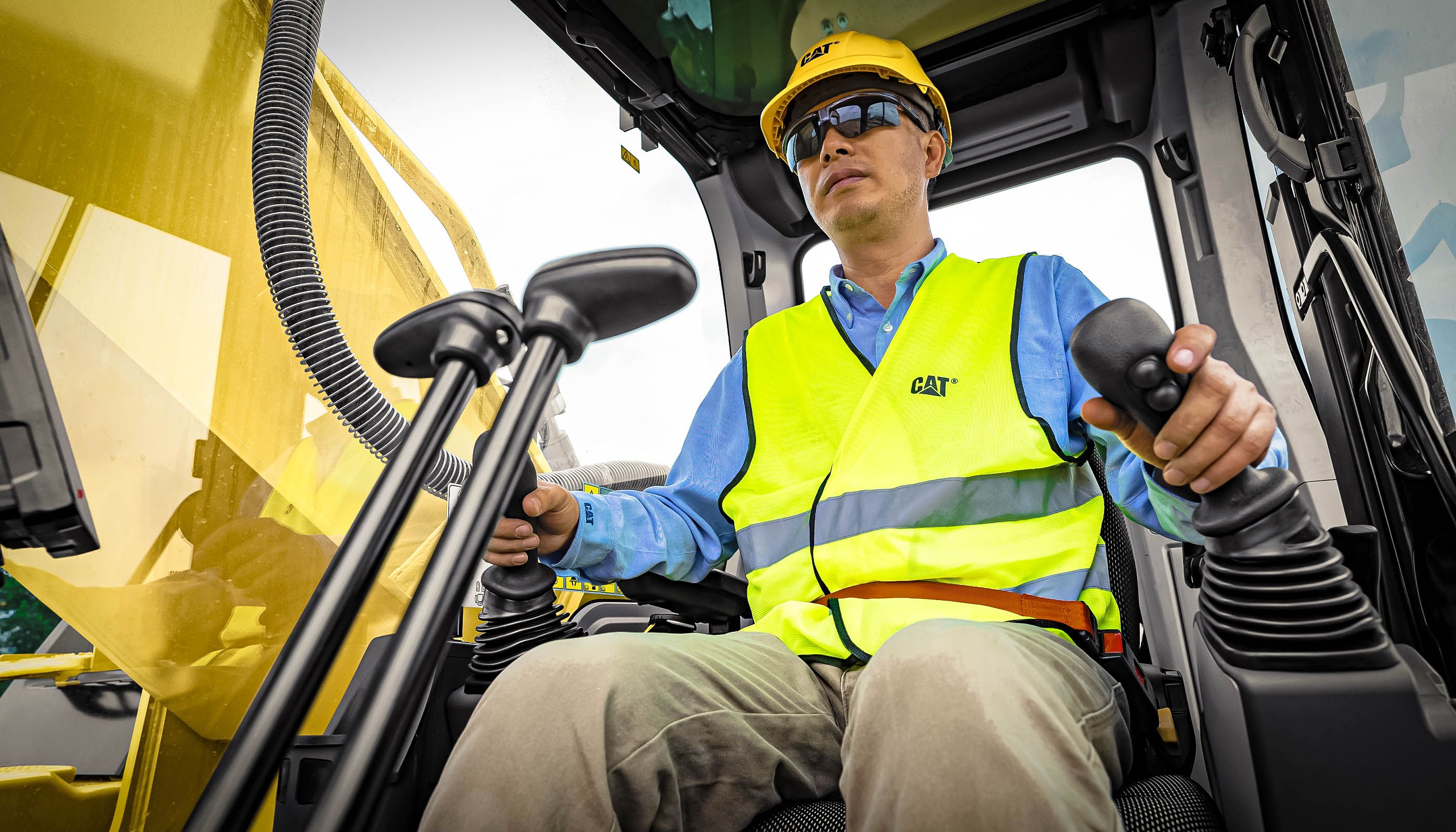

Sign In
Welcome! Sign In to personalize your Cat.com experience
If you already have an existing account with another Cat App, you can use the same account to sign in here
Register Now
One Account. All of Cat.
Your Caterpillar account is the single account you use to log in to select services and applications we offer. Shop for parts and machines online, manage your fleet, go mobile, and more.
Account Information
Site Settings
Security
Author: Small Business Expert | November 22, 2021 | Topic: Used Equipment
Top 5 Tips for Safely Operating Heavy Equipment
If you work in construction, heavy equipment is vital to your operations. From roadwork to home building to demolition, you need heavy machinery for a wide range of jobs.
These powerful machines must be operated properly to ensure everyone stays safe on your job site. Read on to learn why heavy equipment safety is so important and discover the best safety tips for heavy equipment operators.
5 Tips for Safely Operating Heavy Equipment
Here are the top five heavy construction equipment safety tips:
1. Receive Training
Heavy equipment operators must receive thorough training to ensure they know how to use the machinery. Training is the best way to educate operators and get them comfortable with the machines. Training should also be ongoing and include instructional and hands-on learning.
2. Inspect the Equipment
Before the operator starts the equipment, they should inspect it to make sure it's in good operating condition. Operators should check fluids and tire pressure to ensure these are at the proper levels. They should also visually inspect belts, tracks, hoses and other components for signs of wear or damage.
3. Pay Attention to Surroundings
Heavy equipment operators must be on the lookout for any obstacles in their path. They must account for the machine's blind spots by stepping off the machine to check behind it or using spotters as a second pair of eyes. They should also know where power lines, gas lines and other overhead and underground hazards are to avoid them.
4. Communicate
Communication between machine operators and ground workers is key to ensuring everyone on the job site knows what to expect and what to do. Radio communication and clearly displayed hand signals are excellent ways to ensure workers understand each other.
5. Wear a Seat Belt and Proper Safety Equipment
Workers should always wear a seat belt when operating heavy equipment. A seat belt protects machine operators if a rollover or side-tipping occurs.
Operators should also wear the appropriate gear, such as boots, hard hats and safety goggles. They should avoid loose clothing that could get caught on machine components or job site structures.
Find Used Heavy Equipment From Your Local Cat® Dealer
If you're looking to add used heavy equipment to your fleet, search our inventory and contact the Cat® dealer near you for more information. You can also sign up to receive email alerts about equipment availability.
